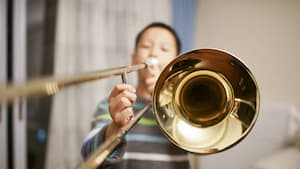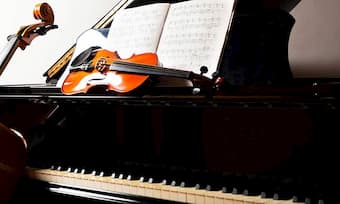The internet is full of articles promising to help you learn to play an instrument:
– Learn to play in just 4 weeks!
– Play piano in 10 easy steps
– 5 ways to become a great pianist
As one of my teachers remarked on more than one occasion, “If it was that easy, everyone would be doing it!“.
 Those of us who choose to embark seriously on this crazy, fulfilling, life-enhancing, frustrating and fascinating path do so with the understanding that the acquisition of skill, improvement and development are hard won (and for the professional, there is the added burden of the cut-throat competitiveness of the profession). It doesn’t matter at what level you play – you can be a serious beginner or an advanced player; what matters is the commitment, made in the knowledge that this is ongoing process. For many of us (and I find this attitude is particularly common amongst amateur musicians), it is the journey not the destination that makes learning and playing the piano so satisfying and absorbing.
Those of us who choose to embark seriously on this crazy, fulfilling, life-enhancing, frustrating and fascinating path do so with the understanding that the acquisition of skill, improvement and development are hard won (and for the professional, there is the added burden of the cut-throat competitiveness of the profession). It doesn’t matter at what level you play – you can be a serious beginner or an advanced player; what matters is the commitment, made in the knowledge that this is ongoing process. For many of us (and I find this attitude is particularly common amongst amateur musicians), it is the journey not the destination that makes learning and playing the piano so satisfying and absorbing.
If you don’t enjoy practicing – the process – forget it. You’ll never achieve mastery of your Grade 2 pieces or Rachmaninoff’s Third Piano Concerto. Practicing is the bedrock of the musician’s “work”. For the professional, this usually has an end point – or rather a string of end points – concerts; but alongside that, there is the need to learn new repertoire, keep existing repertoire alive and fresh, to revive previously-learnt pieces, and to continually reflect on and review one’s skills, technically, musically and artistically.
Rachmaninoff: Piano Concerto No. 3 in D Minor, Op. 30 – II. Intermezzo: Adagio – Un poco più mosso (Boris Giltburg, piano; Royal Scottish National Orchestra; Carlos Miguel Prieto, cond.)

© www.londonpianoinstitute.co.uk
But there’s more. Because practicing isn’t just about sitting at the piano or standing at your music stand, clarinet in hand, turning the dots and squiggles on the score into sounds. Practicing – productive, thoughtful, deep practicing – involves the head and the heart as well as the body. Each phrase, each chord, each scalic run or passage of arpeggios must be considered and reviewed. Listen as you play (and you’d be amazed how many musicians don’t actually listen to themselves!). Reflect, review, play again. And again, and again….and make each of those repetitions meaningful.
Come to each practice session with an open mind and a willingness to fully engage with the music all the time. I’ve read accounts of great pianists practicing technique while reading a book propped on the music desk. This kind of mechanical practice is not helpful – and can even be harmful. Even when practicing the dullest exercises, or scales and arpeggios, find the music within, and bring expression and artistry to every note you play.
Approach your music with a clear internal vision of how you want it to sound. For less experienced players, this can be confusing, the fear of entering unknown territory. How do I know how it should sound? you might ask. But this marks your first forays into interpretation, into taking ownership of the music and making it yours. Our interpretative decisions about our music are shaped by our own experience – playing or listening to repertoire by the same composer, or from the same period, reading around the music, going to concerts, conversations with teachers and other musicians, and harnessing the power of our imagination to bring the music to life. Don’t feel constrained by the notion that there is a “right way”, but rather forge your own way, and be committed to it. We take ownership of the music by recognising and committing to the value of what we have to say.
When we practice we should do so actively and creatively with joy, playfulness and spontaneity, appreciating every note, every sound, the feel of the keys beneath the fingers, the way the body responds to the music, the nuances of dynamics (both indicated and psychological, as the music demands), articulation, expression, and so forth. In short, our music making should be an ongoing, responsive process of discovery and refinement, rather than one of predictability, averageness or “good enough”.
Such a dedicated craft takes inordinate amounts of work – concentrating on very short sections of the score, seeking feedback from intense self-monitoring, at all times remaining curious and open-minded – but this approach provides us with accountable tools (interpretative, technical, artistic, and psychological) and validation methods that put us on the path to mastery and give us the confidence, and willingness, to stick with the task.
Learn an instrument in 6 weeks? No way! It’s a lifetime’s work.




